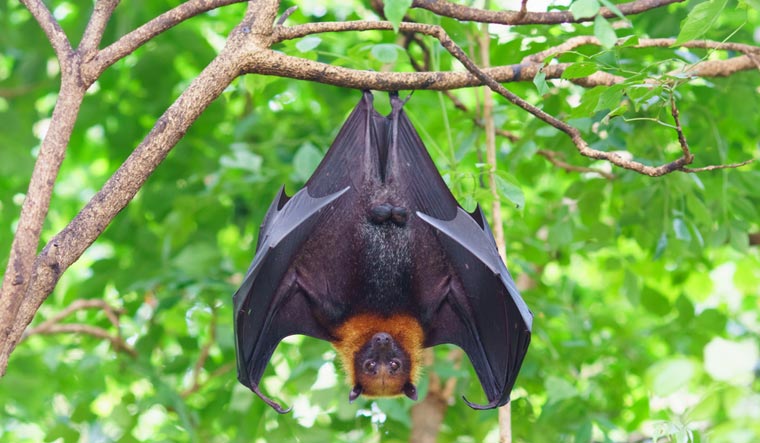Research done in China has found that the novel coronavirus causing COVID-19 either could have been the mutated version of a bat virus, which developed the capacity to cause the disease in humans, or got transmitted to pangolins from bats and then to humans, the ICMR said on Wednesday.
Head of Epidemiology and Communicable diseases at the Indian Council of Medical Research (ICMR) Raman R Gangakhedkar said that coronavirus is found in bats, but an incident of it spreading from bats to humans happens once in, may be, a thousand years when any virus changes species."That is a rare event," he said.
"We have come to know from the research in China so far that the virus which has affected humans either may have been because the bat virus has mutated in such a form that it has developed the capacity to cause disease in humans or it got transmitted to pangolins from bats first and then to human beings," Gangakhedkar said.
Referring to a recent ICMR study which has found the presence of bat coronavirus in two species -- Rousettus and Pteropus -- in some states, he said these are incapable of affecting humans adversely.
"We started a survey on emerging infectious diseases and to see if those viruses can be found in bats. We found the presence of bat coronavirus (BtCoV) in two bat species but they are not capable of affecting human beings adversely.
"These bat coronaviruses have no relation with SARS-CoV2, which is responsible for the COVID-19 pandemic," he said.
Researchers have found the presence of BtCoV in two species from Kerala, Himachal Pradesh, Puducherry and Tamil Nadu, according to the ICMR study, published in the Indian Journal of Medical Research.
There is no evidence or research to claim that these bat coronaviruses can cause disease in humans,Dr Pragya D Yadav, Scientist at National Institute of Virology-Pune and also the firstauthor of study had said.
Throat and rectal swab samples of the twobatspecies from seven states were screened for thebat coronvirusduring which the representative samples collected from Kerala, HimachalPradesh, Puducherry and Tamil Nadu tested positive while those from Karnataka, Chandigarh, Punjab, Telengana,Gujarat and Odishacame out negative, the study said.
Thereverse-transcription polymerase chain reaction (RT-PCR) tests and sequencing were used for the confirmation of the findings.



